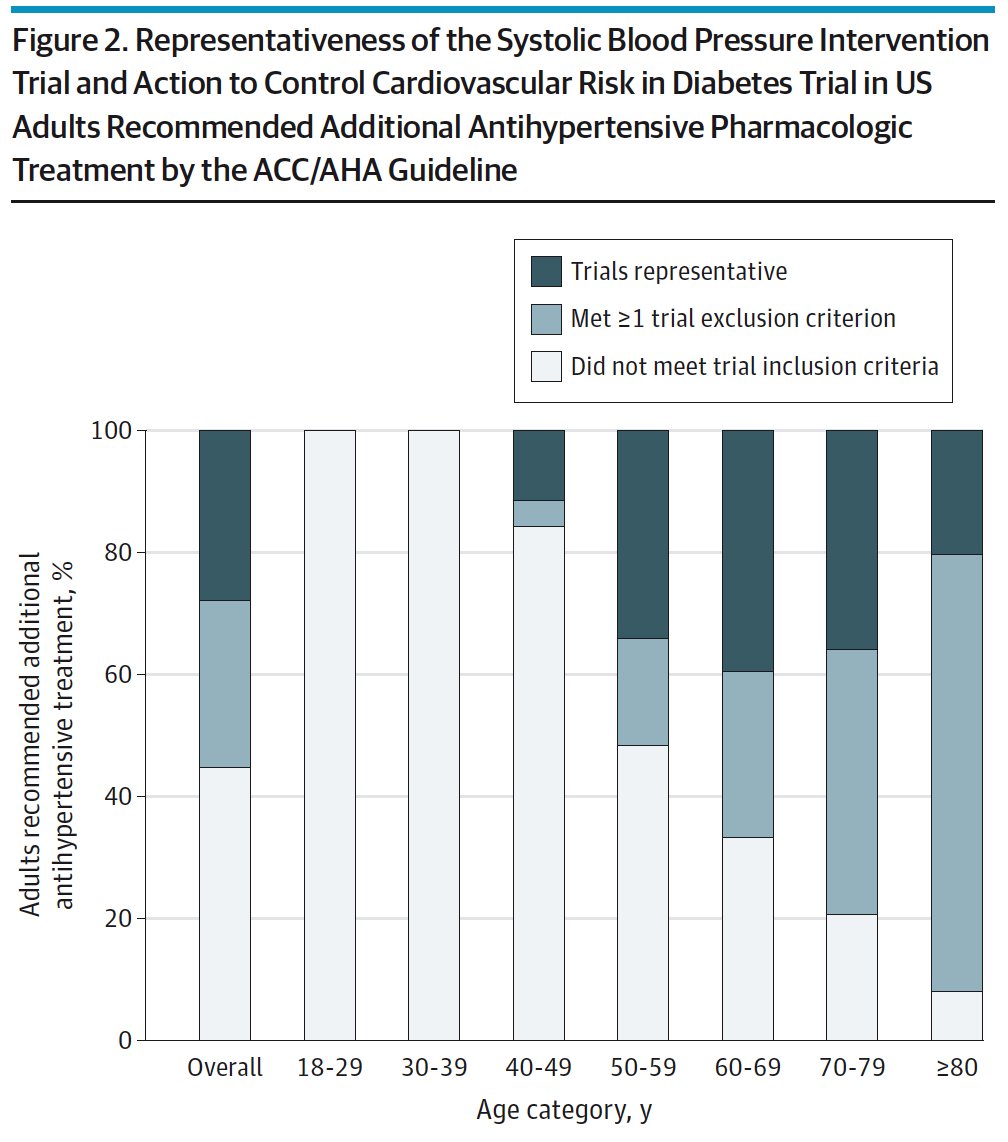
🚨New in @JAMANetworkOpen🚨
We examined clinical outcomes of intensifying hospitalized older adults' #diabetes medications at discharge...
🧓+💉+💊+ 🏥--->🏡
Link: ja.ma/3DYuVnI
This will be a thread...
We examined clinical outcomes of intensifying hospitalized older adults' #diabetes medications at discharge...
🧓+💉+💊+ 🏥--->🏡
Link: ja.ma/3DYuVnI
This will be a thread...
🧐Deeper Dive
Patients👵👴 often have blood sugar fluctuations in hospital, due to:
➖Acute illness
➖Home meds held
➖New meds
➖Stress
➖Diet change
We have guidelines for managing DM during hospitalization for other conditions, but no data on intensifying meds at discharge
Patients👵👴 often have blood sugar fluctuations in hospital, due to:
➖Acute illness
➖Home meds held
➖New meds
➖Stress
➖Diet change
We have guidelines for managing DM during hospitalization for other conditions, but no data on intensifying meds at discharge
In prior work, we found med changes are common, even among patients unlikely to benefit
Link: jamanetwork.com/journals/jaman…
Link: jamanetwork.com/journals/jaman…

So…what happens to hospitalized older adults with diabetes (DM) who are prescribed more intensified DM meds at discharge⁉️
Seems an important question for:
👉hospitalists (#JHMChat)
👉PCPs (@primarycarechat)
👉 endocrinologists
👉👉👉PATIENTS!
Seems an important question for:
👉hospitalists (#JHMChat)
👉PCPs (@primarycarechat)
👉 endocrinologists
👉👉👉PATIENTS!
Research Context
Examined the national VA health system because we can reliably track medication use & clinical data like blood glucose & HbA1c.
(Downside of VA is generalizability esp for gender)
Examined the national VA health system because we can reliably track medication use & clinical data like blood glucose & HbA1c.
(Downside of VA is generalizability esp for gender)
Focused on older adults 👴👵🧓 = highest risk of hospitalization & med harms.
Focused on hospitalizations for common medical/cardiac conditions (not DKA/HHS)
Study period = 2011-2016 (pre- SGLT2/GLP1 era)
Focused on hospitalizations for common medical/cardiac conditions (not DKA/HHS)
Study period = 2011-2016 (pre- SGLT2/GLP1 era)
Exposure = discharge with a new or higher dose diabetes med 💉💊
* Caveat, it near impossible to study insulin dose changes, as they don’t result in new prescriptions, so we studied only patients not taking insulin on admission, but included those receiving new insulin
* Caveat, it near impossible to study insulin dose changes, as they don’t result in new prescriptions, so we studied only patients not taking insulin on admission, but included those receiving new insulin
Co-primary outcomes
1. Severe hypoglycemia
2. Svere hyperglycemia;
Severe = leading to ED or hospitalization
Time-frame = 30 days & 365 days
Secondary
1.Death
2.Persistence to intensified meds
3.HbA1c at 1 year
1. Severe hypoglycemia
2. Svere hyperglycemia;
Severe = leading to ED or hospitalization
Time-frame = 30 days & 365 days
Secondary
1.Death
2.Persistence to intensified meds
3.HbA1c at 1 year
Nerdy stats…
🧮 Propensity score matching approach to adjust for measured confounding
🧮 Fine and Gray proportional subdistribution hazards models for outcomes
🧮 Propensity score matching approach to adjust for measured confounding
🧮 Fine and Gray proportional subdistribution hazards models for outcomes
Top-line results
Older adults receiving diabetes intensifications at discharge had:
-Higher risk of severe hypoglycemia‼️
-No difference in hyperglycemia
-Both outcomes were quite rare
Older adults receiving diabetes intensifications at discharge had:
-Higher risk of severe hypoglycemia‼️
-No difference in hyperglycemia
-Both outcomes were quite rare

Second-line results
-Decreased mortality at 30 but not 365 days (More not this shortly)
-No difference in readmissions
-Decreased mortality at 30 but not 365 days (More not this shortly)
-No difference in readmissions
What about the mortality benefit?
- Prob confounding, as RCTs do not show a 30 day mortality benefit from DM meds
- We suspect driven by a group of patients with high risk of short-term mortality who (appropriately) were not intensified (e.g. patients headed to hospice)
- Prob confounding, as RCTs do not show a 30 day mortality benefit from DM meds
- We suspect driven by a group of patients with high risk of short-term mortality who (appropriately) were not intensified (e.g. patients headed to hospice)
- We excluded those receiving hospice, but some may decline hospice services (spent a year trying to track this down & remain😕)
- Fortunately, this odd finding should not strongly bias other outcomes given Fine-Gray models
- Fortunately, this odd finding should not strongly bias other outcomes given Fine-Gray models
So what does this all mean clinically?
My take: Most of the time, DM intensifications can wait until after discharge & patient recovery from acute illness. Inpatient docs should communicate concerns with patients & PCPs for f/u
My take: Most of the time, DM intensifications can wait until after discharge & patient recovery from acute illness. Inpatient docs should communicate concerns with patients & PCPs for f/u

When health stabilizes a decision to intensify meds may be safer, more patient-centered, & more likely to stick.
Old but true adage: Treat the patient not the number
Old but true adage: Treat the patient not the number
If all this sounds familiar, our team has been studying outcomes of med changes at hospital discharge for a bit…
Why? This is a largely evidence-free scenario which inpatient docs & residents deal with every day!
Why? This is a largely evidence-free scenario which inpatient docs & residents deal with every day!
Want to read more? See our prior work on blood pressure!
1. bmj.com/content/362/bm…
2. link.springer.com/article/10.100…
3. acpjournals.org/doi/10.7326/M2…
4. jamanetwork.com/journals/jamai…
1. bmj.com/content/362/bm…
2. link.springer.com/article/10.100…
3. acpjournals.org/doi/10.7326/M2…
4. jamanetwork.com/journals/jamai…
Closing out with 🙏 to our team - @MikeSteinman Alexandra Lee @Bochizzle @seijlee @ShaniHerzig
🙏 @NIH & NIA
🙏 @NIH & NIA
🙏 to @RozalinaMD & Patrick O’Conner for a thoughtful commentary on the paper, published today as well in @JAMANetworkOpen
ja.ma/3E5aaqE
/END
ja.ma/3E5aaqE
/END
Unroll @ThreadReaderApp
• • •
Missing some Tweet in this thread? You can try to
force a refresh








